New clashes between police, anti-coup protesters rock Sudan capital after deadliest day since October coup
Fresh clashes between police and anti-coup protesters have rocked the Sudanese capital, Khartoum, just a day after 15 protesters were killed in a crackdown, marking the deadliest day in the African country since a military putsch last month.
Police on Thursday fired tear gas canisters at anti-coup protesters to disperse crowds of them who had stayed on the streets of north Khartoum overnight despite an escalating crackdown that has drawn international outcry.
Police flattened makeshift barricades that protesters had put up on Wednesday, when security forces shot dead at least 15 protesters, most of them in north Khartoum, raising the toll since the coup to 39.
Over 100 other demonstrators were wounded, including 80 who sustained gunshots to their upper bodies and heads.
Protesters rally despite a near-total shutdown of internet services and the disruption of telephone lines across Sudan.
Later on Thursday, dozens of protesters came back to rebuild the demolished barricades, prompting police to once again fire teargas in a bid to clear the streets.
“Protesters responded by hurling stones at the police,” one protester said.
More than two years ago, massive anti-government demonstrations, mostly over deteriorating economic problems, hit Sudan, with protesters, mostly the youth, demanding then President Omar al-Bashir step down.
Bashir was ultimately deposed through a military coup following months of protests in April 2019, after ruling over the country for three decades. In August that year, a governing council comprised of civilian and military leaders, was founded to run the country. The transitional civilian-military administration, Sudan’s highest executive authority, is tasked with leading the country to free and fair multiparty elections.
However, a military coup, led by Sudan's military chief and de-facto leader General Abdel Fattah al-Burhan, was staged on October 25 that dissolved the fragile government. Prime Minister Abdalla Hamdok was detained and put under house arrest in a move that infuriated the Sudanese and drew international condemnation, including from the UN Security Council. Other civilian leaders are in military detention.
"We have received alarming reports of increased use of lethal force by the military against peaceful protesters,” said UN Special Rapporteur on Freedom of Association Clement Voule, calling on the international community to “put pressure on Sudan to immediately stop the repression against civilians and respect their rights.”
Burhan has said the military would establish a new technocrat government, promising that elections would take place in July 2023. Until then, he has claimed, the military would be the guarantor of the democratic transition and of Sudan’s stability and security.
Protesters flatly reject his claims.
Last Thursday, Burhan reappointed himself head of a new Sovereign Council that excludes the country's main civilian bloc. On Friday, military figures and new civilian members of the so-called ruling council were sworn in before Burhan. The moves infuriated the Sudanese and drew more condemnation from the West.
Separately on Thursday, opponents of Burhan’s coup vowed to escalate their protests and seek “open escalation” against the coup, a decision that will risk more deadly confrontation as the junta shows no sign of backing down.
“There is increasing despondency, but the resilience of the ongoing protest movement gives hope that the coup could still be reversed. There is still a window of opportunity to do that, but it is narrowing,” said Ahmed Soliman of the Chatham House think tank.
European Union foreign policy chief Josep Borrell, for his part, called for the restoration of ousted Hamdok and the release of other detained civilians.
“If the constitutional order is not immediately restored there will be serious consequences for our support, including financial,” EU’s top diplomat said in a statement.
Additionally, UN High Commissioner for Human Rights Michelle Bachelet on Thursday denounced the Sudanese security forces’ use of live rounds against peaceful protesters, after 15 protesters on Wednesday.
She said that her office had frequently appealed to Sudan’s military and security forces “to refrain from the use of unnecessary and disproportionate force against demonstrators.”
“It is utterly shameful that live ammunition was again used yesterday against protesters,” Bachelet further said in a statement.
"Shooting into large crowds of unarmed demonstrators, leaving dozens dead and many more injured, is deplorable, clearly aimed at stifling the expression of public dissent, and amounts to gross violations of international human rights law,” the UN official added.
Bachelet also lambasted the military leaders’ decision to shut down internet and the disruption of telephone lines across Sudan.
“Blanket internet and telecommunications shutdowns violate core principles of necessity and proportionality and contravene international law,” she said.
Such decisions meant that people were “unable to call for ambulances to treat injured protesters, families are unable to check on the safety of their loved ones, and hospitals are unable to reach doctors as emergency rooms filled up,” Bachelet warned.
In recent weeks, the military has been mounting a harsh crackdown on protesters, who have been taking to the streets after Sudan’s main opposition coalition called for civil disobedience and protests across the country hours after the military coup.
Iran, US move ‘closer to agreement’ after ‘serious, longest’ round of talks: FM
Israeli army chief privately warns of cost of new war with Iran: Report
IRGC official: US buildup, psychological tactics aim to 'swallow Iran again'
Iran’s three-man team captures triple gold at UWW ranking series in Tirana
Iranian academic sentenced to 4 years in prison in France for supporting Palestine
VIDEO | Press TV's news headlines
Russia: West seeks to repeat past ‘plunder’ of Iran’s oil
Herzog visits Ethiopia to expand Israeli footprint in Africa


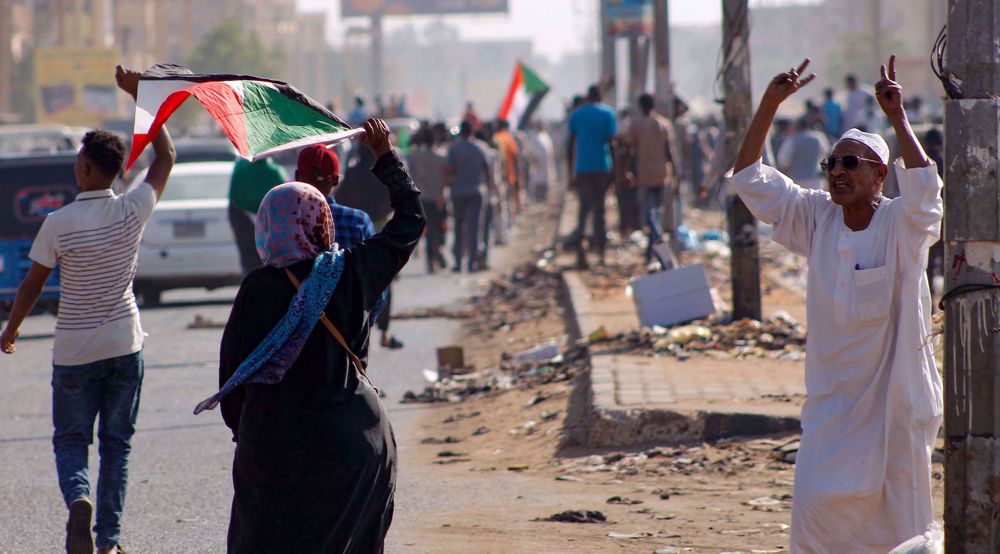
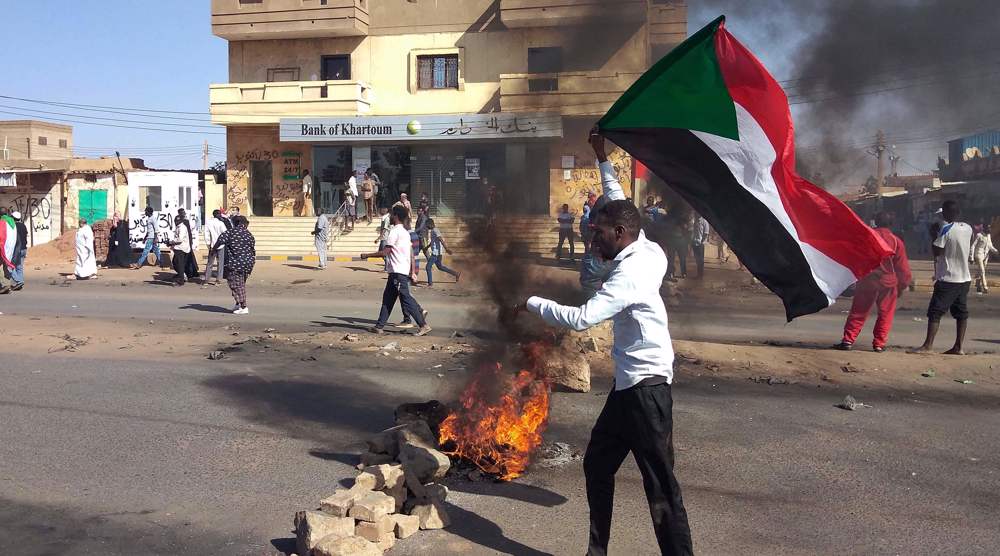
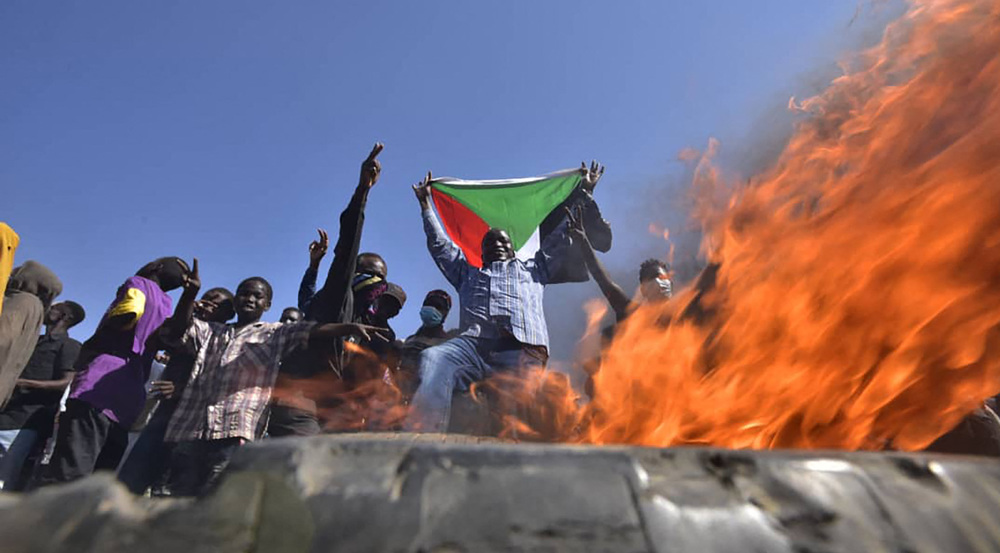
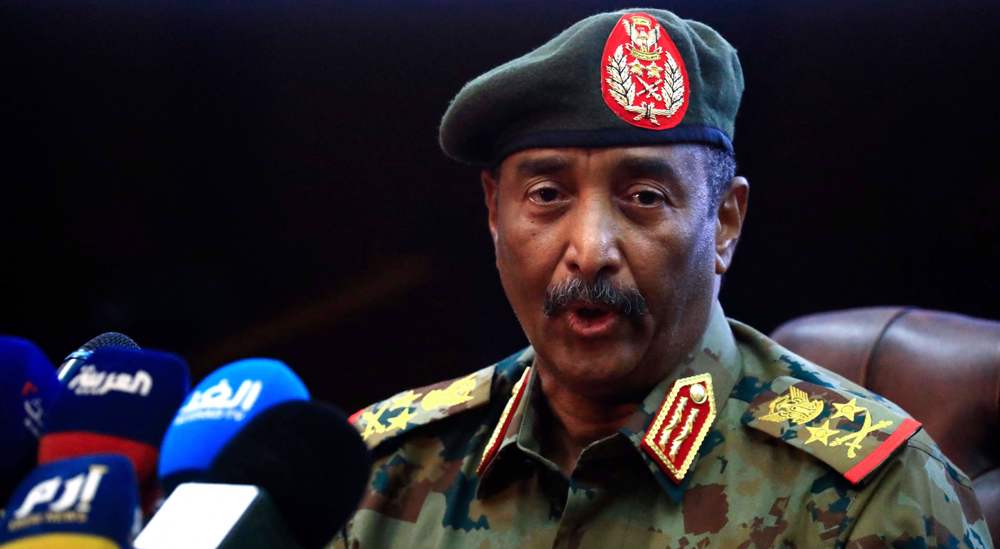
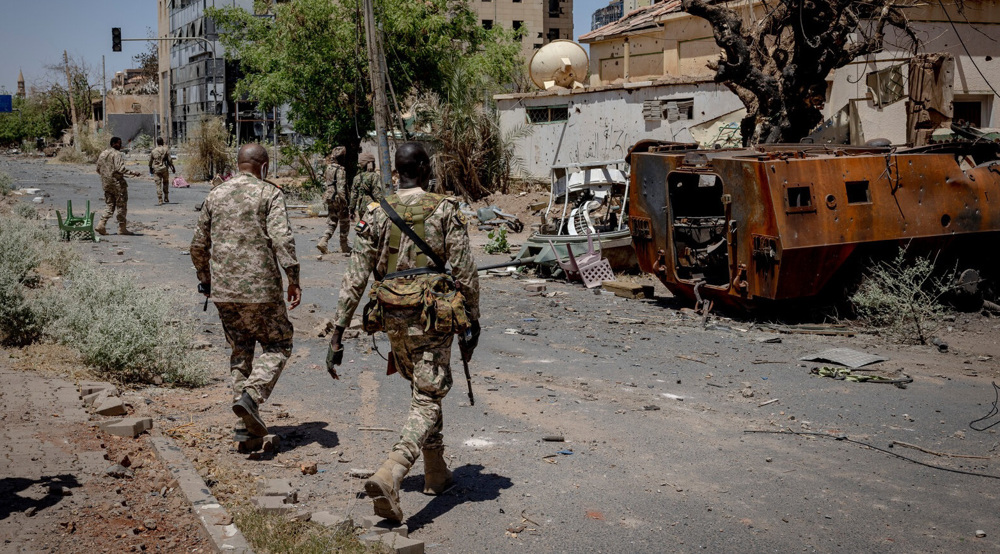
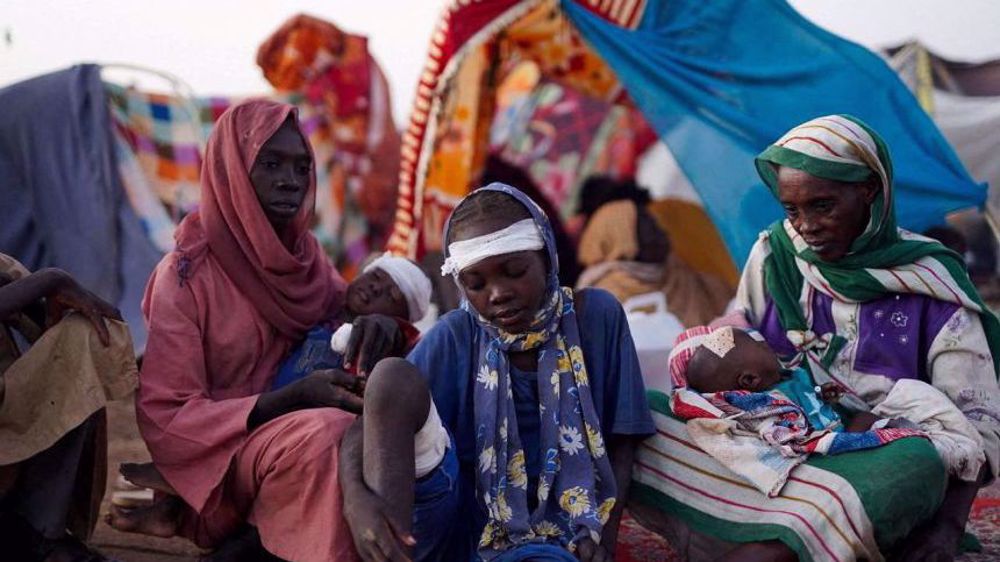
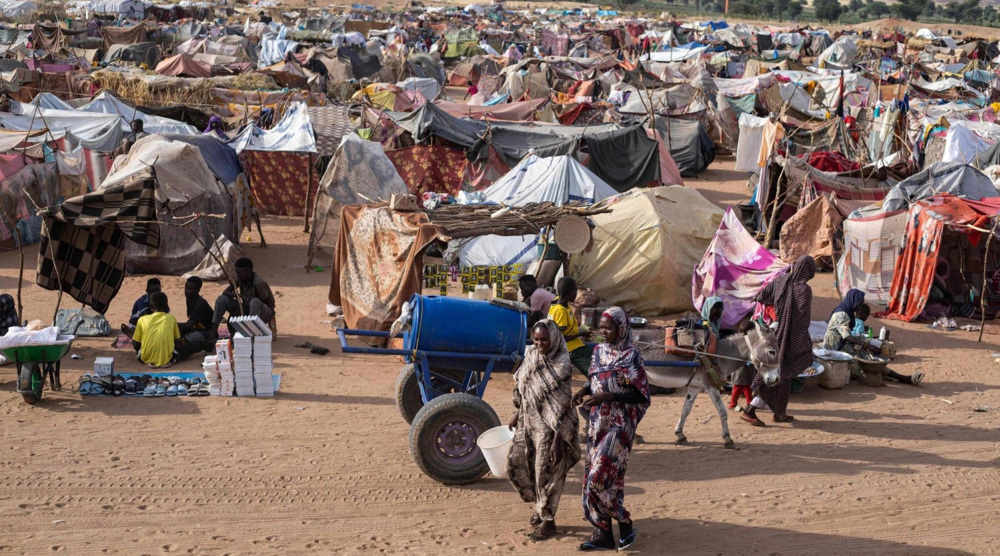




 This makes it easy to access the Press TV website
This makes it easy to access the Press TV website